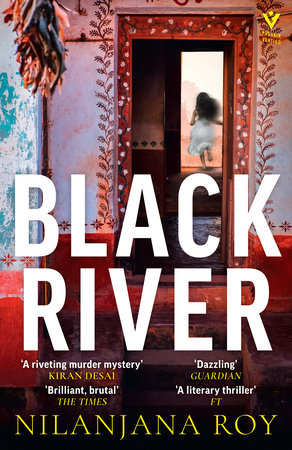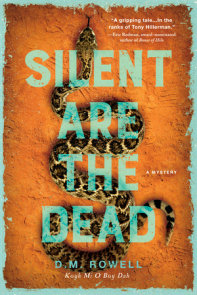READERS GUIDE
BLACK RIVER —NILANJANA ROY —READING GROUP GUIDE1. “City or village or small town, it doesn’t matter. The heartless drift through life like floating spores, evil spreading like mould wherever they land.” (Gifts, page 234)
The characters in Black River experience challenges in border villages and in sprawling metropolises, from the murder of a child to growing religious persecution. Is there only evil and the brute force of power in these lives and landscapes, or do Chand, Rabia and Ombir also find some hope and some sense of connection?
2. “Weren’t we given love as well, along with the rest?” (Black River, page 305)
How important are friendships and close relationships in this novel? What happens in cities or communities where certain forms of friendship are heavily policed, either between people of different religions or between men and women? Does that affect the possibility of justice and of love?
3. The ‘black river’ of the title was once a dancing, silver-grey
river full of life, just as the air in Delhi was once more free and less polluted. Can noir fiction capture changes in the environment and the climate, and how do these changes reflect broader changes in a city of millions?
4. “Up on the footbridge, he looks down at the city, the swirling crowds, the puttering scooters, a trundling double-decker bus, motorcycle taxis festooned with passengers. He can feel himself becoming just one of many, at liberty to shape his life in any manner that he chooses. Anonymous, unknown, free.” (Wellcome, page 64)
The lives of migrants, in India or elsewhere, are often precarious and hard, as Chand, Rabia and Khalid discover in 1990s Delhi. But are there also pleasures and compensations? What does it mean, for various characters in Black River, to find or claim a sense of belonging, or home?
5. “Justice. His years in the police have not convinced him that there is much justice in the universe, or that it is his job to commit acts of justice. But he does not like deceit. He does not like loose ends.” (Loose Ends, page 190)
When the police in any country are known for their corruption, serve the interests of the powerful, and often harbour bigotry or biases themselves, how do policemen like Ombir break away, even briefly? What drives his quest for justice — an inconvenient compulsion that he can’t fully explain to himself, or a sense of duty to the community, or a deep-rooted belief in something higher than the daily grind of police life in small town India?
6. Did this novel challenge your understanding of right and wrong? Are there many, or any, heroes and villains, or do most characters have some shades of grey? Is it acceptable to turn to violence to address a failure of justice? Some crimes go mostly unpunished, and while that accurately reflects reality, where does the reader find a sense of resolution in a morally flawed world?




















